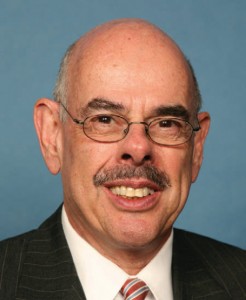 Earlier this month, seven members of Congress wrote President Obama to “strongly recommend that the United States refrain from negotiating any provisions related to exclusivity for biosimilar medicines” in the Trans Pacific Partnership.
Earlier this month, seven members of Congress wrote President Obama to “strongly recommend that the United States refrain from negotiating any provisions related to exclusivity for biosimilar medicines” in the Trans Pacific Partnership.
The letter from Reps. Waxman, McDermott, Stark, DeLauro, Schakowsky, Welch and Grijalva quoting the Office of Management and Budget, which argues that “12 year exclusivity is unnecessary to promote innovation by brand biologic drug manufacturers and can potentially harm consumers by directing scarce research and development funding toward developing low-risk clinical data for drug products with proven mechanisms of action rather than toward new products to address unmet medical needs.”
(The OMB proposes to reduce the period of data exclusivity available to biosimilars under U.S. law to reduce federal health expenditures.)
Link to August 4, 2011 Letter on Rep. Waxman’s website.
U.S. Office of Management and Budget. Fiscal Year 2012 Terminations, Reductions and Savings.
Data exclusivity is a period during which generic manufacturers are unable to win regulatory approval based on clinical data showing the originator’s product is safe and effective. Previous free trade agreements with the United States have included periods of five years of data exclusivity for new small molecule drugs (and in some cases, three years of data exclusivity for pharmaceutical products that are not new chemical entities). To date, no U.S. trade agreement has included provisions requiring longer periods of exclusivity for biologic drugs.
In a blog about the letter, PhRMA points out that another Congressional letter recently urged Obama to include 12 years of data exclusivity in the TPP.




